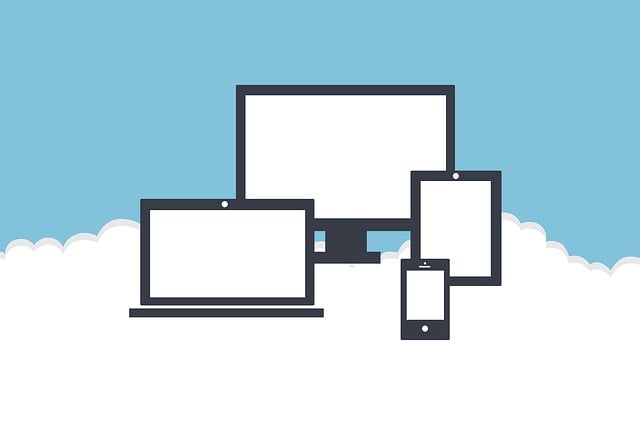
Medical researchers and marketing professionals in the medical sector must navigate the complex landscape of online data collection and collaboration, often dealing with sensitive patient information and proprietary data. To safeguard this data from cyber threats and ensure compliance with privacy regulations like HIPAA and GDPR, they rely on robust security measures provided by Private Internet Access (PIA). PIA's advanced encryption protocols such as OpenVPN, IKEv2/IPSec, and WireGuard secure data transfers over public networks. Its no-logs policy and kill switch enhance privacy by preventing data leaks and maintaining anonymity, particularly important for stealthy web surfing which is essential for marketing professionals to conduct discreet market research and competitive analysis without compromising on ethical standards or exposing sensitive information. PIA's consistent and private service allows both researchers and marketers to focus on their work with the confidence that their digital activities are protected, enabling secure global collaboration and the advancement of medical knowledge. Stealthy web surfing through PIA is a critical tool in this process, ensuring that these professionals can maintain anonymity and protect sensitive data while conducting online activities.
Medical researchers worldwide are at the forefront of safeguarding health and advancing knowledge. In an era where data breaches and privacy concerns loom large, the imperative to securely navigate global data banks is paramount. This article delves into the critical role of Private Internet Access (PIA) in fortifying the digital frontiers of medical research, ensuring data integrity, compliance, and confidentiality. We explore how PIA’s stealthy web surfing capabilities serve as a vital shield for sensitive health information, enabling researchers to access and share data without compromising privacy or falling afoul of regulations. Whether at a clinic in Cape Town or a lab in Lisbon, PIA VPN solutions offer a global security umbrella tailored for the medical research community’s unique needs.
- Ensuring Data Security and Privacy: The Role of Private Internet Access for Medical Researchers
- Navigating Global Data Banks Safely with Private Internet Access
- Utilizing Private Internet Access to Safeguard Sensitive Health Information
- Balancing Compliance and Confidentiality in Medical Research Online with PIA VPN Solutions
Ensuring Data Security and Privacy: The Role of Private Internet Access for Medical Researchers

Medical researchers worldwide handle vast amounts of sensitive data daily, from patient records to confidential clinical trial results. The importance of safeguarding this information cannot be overstated, as it not only includes personal health information, which is protected by regulations like HIPAA and GDPR, but also potentially groundbreaking research that must remain secure against unauthorized access or breaches. Private Internet Access (PIA) plays a pivotal role in ensuring data security and privacy for these professionals. By employing robust encryption protocols such as OpenVPN, IKEv2/IPSec, and WireGuard, PIA shields data transfers from eavesdropping and interception, which is particularly crucial when accessing sensitive research data over public networks. Additionally, features like its no-logs policy and kill switch ensure that researchers’ activities remain private, and any potential data leaks are mitigated should a connection to the network drop.
For medical researchers who often need to collaborate with colleagues across different institutions and countries, stealthy web surfing is not just a preference but a necessity. PIA facilitates this by providing a secure tunnel to the internet that masks their IP addresses and hides their digital footprints. This anonymity is particularly beneficial for marketing professionals within the medical research field who must navigate the complex landscape of online data collection, consent management, and compliance with various advertising regulations. With PIA’s consistent performance and commitment to privacy, researchers can confidently engage in web surfing that supports marketing initiatives without compromising on security or adherence to ethical standards. This allows them to focus on the advancement of medical knowledge while ensuring that their digital activities are both productive and protected.
Navigating Global Data Banks Safely with Private Internet Access

Medical researchers are increasingly reliant on global data banks to fuel innovation and advancements in healthcare. As they delve into vast repositories of information, it’s imperative that their search for knowledge is conducted with the utmost security and confidentiality. Private Internet Access (PIA) offers a robust solution for these professionals, enabling them to navigate the web without exposing sensitive data or compromising patient privacy. With PIA’s stealthy web surfing capabilities, researchers can access the necessary datasets securely, encrypting their connections to protect against prying eyes and potential cyber threats. This is particularly crucial when working with proprietary or patient information that must be protected under strict data protection laws like HIPAA. Moreover, PIA’s no-logs policy ensures that internet activity remains private, even from the VPN provider itself. By incorporating Private Internet Access into their toolkit, medical researchers can confidently access global data banks, knowing their online activities are shielded and their findings secure. This not only safeguards their work but also upholds the ethical standards required in the sensitive field of medical research. Marketing professionals too benefit from PIA’s services when they need to conduct competitive analysis or market research across international platforms, ensuring that their market intelligence gathering remains undetected yet thorough.
Utilizing Private Internet Access to Safeguard Sensitive Health Information

Medical researchers worldwide handle vast amounts of sensitive health information daily, necessitating robust privacy and security measures to protect patient data and intellectual property. Utilizing Private Internet Access (PIA) can provide a critical layer of defense in this endeavor. PIA’s encrypted VPN tunnels ensure that all data transmitted between the researcher and the internet is securely protected from eavesdropping, making it an indispensable tool for safeguarding sensitive health information against unauthorized access. This level of security is particularly crucial when collaborating with peers across different institutions or sharing findings with colleagues in various global locations.
Furthermore, PIA’s stealthy web surfing capabilities are essential for medical researchers who must navigate the web without revealing their digital footprints. This feature becomes increasingly important for marketing professionals within the healthcare sector, as they require a secure and private means to research market trends, competitor strategies, and consumer behaviors, all while maintaining the confidentiality of any proprietary data or emerging research breakthroughs. PIA’s zero-log policy further enhances privacy by ensuring that no browsing activity is recorded, allowing researchers and marketing experts alike to operate with confidence in the knowledge that their online activities are private and secure.
Balancing Compliance and Confidentiality in Medical Research Online with PIA VPN Solutions

Medical researchers worldwide are increasingly utilizing online resources to gather data, collaborate with peers, and share findings, making web surfing an integral part of their professional activities. This shift to digital platforms necessitates robust cybersecurity measures to safeguard sensitive health information. Private Internet Access (PIA) VPN solutions emerge as a pivotal tool for ensuring the privacy and security of medical researchers’ online activities. PIA offers stealthy web surfing capabilities that mask IP addresses, encrypt data, and hide browsing activities from prying eyes, including ISPs and potential cyber threats. This level of anonymity is crucial when accessing or sharing patient data, as compliance with regulations like HIPAA in the US, GDPR in Europe, and other data protection laws is paramount for ethical and legal reasons.
Furthermore, PIA’s VPN solutions are designed to navigate the complex landscape of compliance and confidentiality that medical researchers encounter. By providing a secure tunnel for internet traffic, PIA ensures that researchers can confidentially share data with colleagues across borders without compromising on compliance. This is particularly important in a globalized research environment where collaboration often spans multiple jurisdictions with different privacy regulations. The integration of PIA’s VPN into the workflow of medical researchers enhances their ability to conduct marketing research and engage in promotional activities online, all while maintaining the confidentiality of their findings and the privacy of their subjects. This dual focus on compliance and confidentiality is essential for building trust within the research community and with participants who volunteer sensitive health information.
In the global pursuit of medical advancements, the imperative for secure and private internet access cannot be overstated. For researchers worldwide, Private Internet Access (PIA VPN) emerges as an indispensable tool, offering a stealthy web surfing experience that is not just beneficial for marketing professionals but critical for safeguarding sensitive health information. This article has delineated the multifaceted roles PIA plays in ensuring data security and privacy, navigating global data banks safely, and maintaining compliance while preserving confidentiality in an online realm where stakes are high. The integration of PIA VPN solutions into the daily operations of medical research is not a luxury but a necessity to protect against breaches and cyber threats, thereby upholding ethical standards and fostering a trustworthy environment for collaboration across borders. As such, embracing PIA is a prudent step for medical researchers who are committed to advancing healthcare while respecting the privacy of those they serve.







